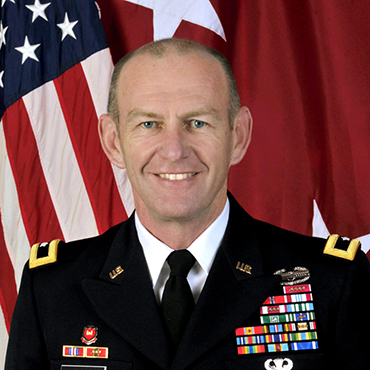Army cyber chief: Invest in Internet of Things research
"People are connecting stuff to the Internet that we never thought would be connected," said Lt. Gen. Edward Cardon, head of Army Cyber Command.

Lt. Gen. Edward Cardon said the vast array of devices connected to the Internet are blurring the lines between vulnerabilities.
More research is needed into the cybersecurity of the Internet of Things, said Lt. Gen. Edward Cardon, head of Army Cyber Command.
"People are connecting stuff to the Internet that we never thought would be connected," Cardon said Jan. 29 at the Institute of World Politics in Washington. "You know people are working on hacking your Fitbit."
The Internet of Things -- a catchall term for the increasing connectivity of a vast array of devices -- is arguably indefensible against hacks and exploits. Defending the billions of connected commercial devices is beyond the U.S. military's authority in cyberspace, but the explosion of connectivity is nonetheless affecting the Pentagon in a big way. Defense Department officials are still in search of a common protocol for the military's far-flung IOT assets to make the most of this connectivity.
A theme of Cardon's remarks was the blurred line between vulnerabilities in cyberspace.
"What we're starting to realize is an event that happens in the commercial space could be happening in the government space and could be happening in the military space," he said. "So it's not like it's all compartmentalized."
The cerebral and soft-spoken lieutenant general is part of a generation of military officers whose job is to draw clearer lines around DOD's role in cyberspace. Cardon has sought to make the Army less hierarchical in how it grapples with the domain's diffuse nature.
The public debate over whether to call the November 2014 hack of Sony Pictures Entertainment a criminal act or an act of war now seems to happen after every major hack, Cardon said.
He also touched on the heightened scrutiny of terrorists' social media presence after the attacks in San Bernardino, Calif., and Paris. The idea of the U.S. military scrutinizing social media accounts "makes a lot of people uncomfortable, but to me this is a national security problem that has to be addressed," he said, adding that the two recent attacks changed the way people look at the issue.
Asked to comment about the coordinated cyberattack on the Ukrainian power grid last month, Cardon declined to go into detail, saying only that he was confident a full account of what happened would come out eventually.
NEXT STORY: Chaffetz wants more answers from Education CIO





